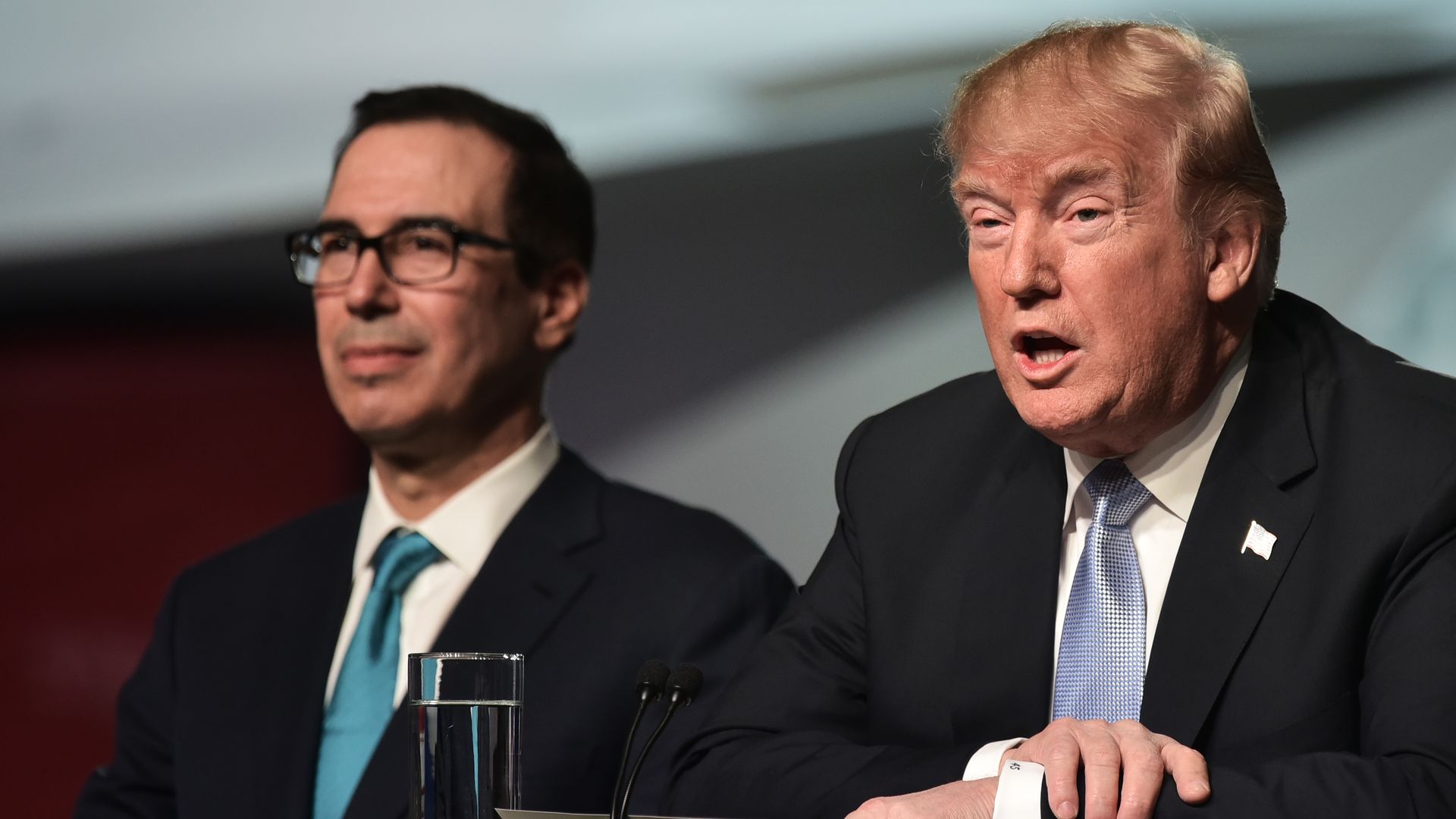Updated Mar 16, 2018 - World
Expert VoicesMore coordinated response needed to Russian attacks on the West
Add Axios as your preferred source to
see more of our stories on Google.

Treasury Secretary Mnuchin and President Trump. Photo: Mandel Ngan / AFP via Getty Images
